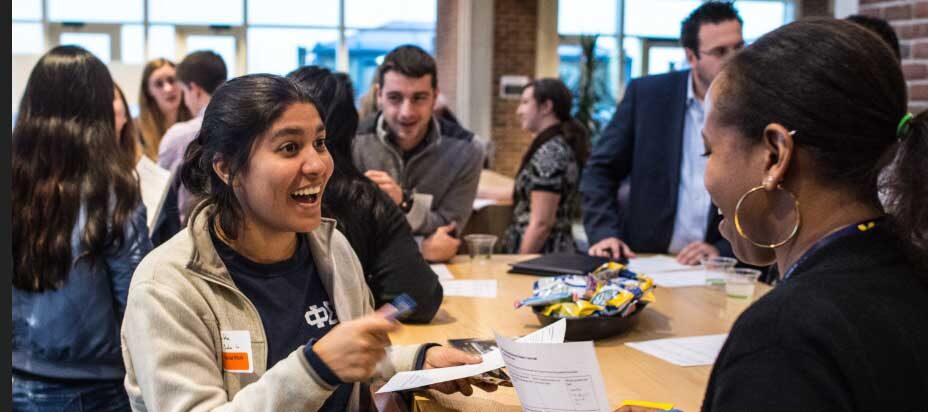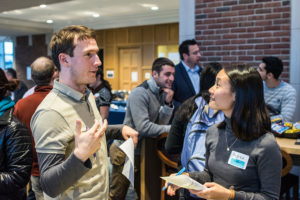
Caring for a patient often requires more than one type of healthcare professional.
A patient with kidney disease may need a nurse to help her with regular logs of blood pressure and sugar checks. She may need a social worker to screen her for depression, assess her support system and ensure she is able to get to and from dialysis. And she may also need a dentist to look at the effects of prescription medications on her salivary flow.
This approach calls for health professionals to collaborate to make sure they and the patient are all communicating consistently and are on the same page about the care plan. Yet for years, health science students have been educated in silos, with no emphasis on training for team-based care.
 Four years ago, U-M set out to change the healthcare education experience by incorporating Interprofessional Education (IPE) into the curriculum for health sciences students across the university. IPE aims to promote the development of multidisciplinary expert teams, so that students can develop skills together and ultimately deliver high quality, safe and effective health care services.
Four years ago, U-M set out to change the healthcare education experience by incorporating Interprofessional Education (IPE) into the curriculum for health sciences students across the university. IPE aims to promote the development of multidisciplinary expert teams, so that students can develop skills together and ultimately deliver high quality, safe and effective health care services.
Embraced by faculty and students from all three U-M campuses, the growing program now will kick-off with a major event at Crisler Center 3-5 p.m. October 17. IPE in Action will give new students their first opportunity to collaborate on patient care.
“One of the unique aspects of IPE in Action is not only does it bring 10 health science units together from across U-M, but it’s also one of the largest educational events ever at U-M, with more than 1,200 students to attend and more than 100 faculty to teach and mentor during the event,” said James Holloway, vice provost for global engagement and interdisciplinary academic affairs.
“Increasingly, it’s the students asking us to allow them to take classes and work together across their health science disciplines. This event is a result of student demand as much as it’s a realization that it’s a good educational mode for students in health sciences.”
Attending IPE in Action is required for many first-year students within these 10 schools so they can immediately establish relationships with each other. They will work through a practice case, facilitated by a faculty member. The case is based on a real-life problem practitioners have faced and collaborated on.
“Interprofessional practice is part of the future of most human services including health care, education and other community based services. Being able to work in teams with other professionals to produce effective and efficient outcomes for the people with multiple needs is a core skill for today’s graduating professionals,” said Lynn Videka, dean and Carol T. Mowbray collegiate professor of the School of Social Work.
“U-M has made a considerable investment in interprofessional education and is now poised to be a national and international leader in the important trend. This is one major way that a U-M education positions graduates to be health care and human service leaders in the future.”
For more information about the event, email IPEcenter@umich.edu.


